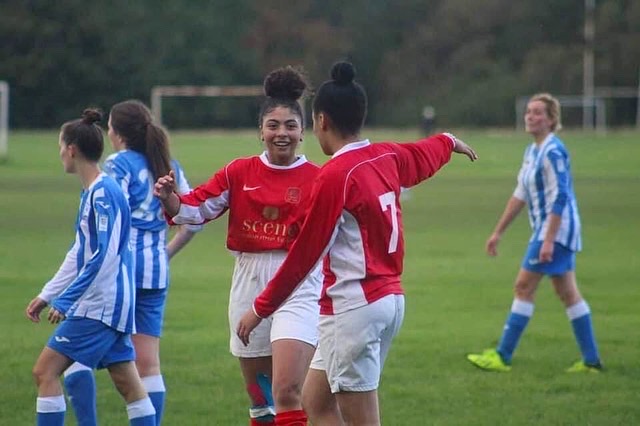
Greater Manchester Football Club is embarking on its inaugural season in the amateur leagues, making waves with a commitment to creating a legacy for equal opportunities in the game throughout the region.
Its men’s team has enjoyed an unbeaten start to life in the Lancashire & Cheshire AFL, winning three and racking up a goal difference of +21 in the process, while the women’s team have registered their first win in the Greater Manchester Women’s Football League. But results almost feel inconsequential when compared to the hugely important achievements off the pitch.
The club’s CEO and chairman, Mohammed Haroon, spoke eloquently and passionately about the formation of GMFC, the hopes for the future, and the significant effort to make the game of football accessible for all people regardless of race or sexual orientation.
Based at Hough End, the club is providing opportunities and a welcoming environment in which to enjoy the beautiful game that sadly seem to be lacking in many other places. As is apparent from our conversation, many of the players have suffered abuse when playing football in the past.
In the two years since the club was originally formed, the interest in the club has been “amazing,” according to Haroon. After putting messages out to all communities about the men’s and women’s teams and the trials for both, the first four weeks saw 286 turn up to the men’s trials and more than 100 for the girl’s team, a “real cross-section” of people, Haroon added.
The environment is special, inspiring, and exciting; the competition is high, and as the club point out, inclusion doesn’t mean a drop in quality. Haroon said: “There is no prejudice on religion or sexual orientation.”
Trials are different too. Rather than just a session or two, prospective players are invited to train over a period of three-to-four weeks, to get a rounded impression of each player.
In total, there are 51 players in the men’s and women’s squads, including individuals who are Atheist, Muslim, Christian, Hindu, Buddhist. The two squads boast 31 different nationalities, including British, British Asian, Iraqi, Syrian, Libyan, Saudi, Somalian, Indian, Pakistani, and Jamaican representatives. The full list is even more diverse.
The open mindset is entrenched in the foundations of the club and on matchdays, an “inspirational” routine that celebrates inclusion is now commonplace.
Haroon explained: “Everybody gets together in a circle, and one of the coaches, who is Italian, says the Christ’s prayer in Latin. Another coach recites Our Father, and one says an Arabic prayer. It’s so inspiring and everybody gets excited about it because we’re all bringing something to the table and proud of our cultures.
“Everybody should be proud of religion and background.”
The club is aware of socio-economic issues and has helped to support players who can’t afford boots, or other equipment. It shows a deep understanding of the communities GMFC hope to represent in the long term.
Although just starting out, GMFC’s approach is anything but novice. Both teams have a manager and assistant manager. There are data and performance analysts who also provide nutritional advice to all players. Both teams also have a strength and conditioning coach, physio, and mental health coordinator - a key position because the club is committed to looking after its footballers, conscious that the failure rate is “astronomically high.”
Haroon said: “Our mental health coordinator will get in touch after injuries. A lot of players come from troubled backgrounds and this has given them a glimmer of hope. We don’t want that glimmer to have a negative impact if it doesn’t work how they want it to, and if they can’t take part for some time, we’ll give them support behind the scenes.
“We’re using the attraction of football to help them become better members of society.”
That drive to equip people with skills that will serve them in the long term is a vital part of the GMFC ethos. Through its partnership with Active Communities Network, all players are provided with a careers interview to identify their skills and qualifications. Any gaps are then filled with courses from academic qualifications – some players are now taking GCSEs, Haroon says – to vocational qualifications such as electrician courses.
Haroon said: “There has to be a plan B. You have to come out of this experience either as a somebody in football, or somebody who is a better, more responsible member of society.
“We want to say with everybody that we’ve given them skills, whatever journey they’ve had with us. So it gives them a worthwhile experience, not only on the football side, but beyond.”
The process to this point has been a thorough one. Formed in 2018, the club has been in contact with the FA for well over a year, who offered their support in the setting-up process after Haroon aired his views about the existing systemic racism and inequality. He is thankful to the Manchester FA’s help with legalities, administration, setup process; organisations such as Kick It Out, Active Communities Network, and Manchester Active have partnered with GMFC, and the L&C have been “extremely welcoming and given us so much support before, and during the process, and what to do when up and running.”
It has been a long journey to get to this point.
Communication is key
Kick It Out has fought for almost three decades to improve equality and inclusion in football. Nationally, the prevalence of systemic racism has been brought to the attention of the wider world with Black Lives Matter and taking a knee highlighted every weekend at clubs throughout the country. But what is the tangible change? Arran Williams, the Northern Grassroots Officer at Kick It Out, is in his third year at the organisation. At the grassroots level, he paints an ominous picture of complaints surrounding racism made “every single week,” and said incidences are at their worst level “by a long way.”
It’s a stark reminder of how difficult it is to accomplish real change – something that GMFC have sought by working with Kick It Out since January 2019. Things really progressed in summer 2019 when plans were put in place and it has built from there, with both GMFC and Kick It Out bringing their own ideas to the table.
Arran said that the commitment to a diverse and inclusive club – something that is “easy to make, hard to prove,” – is apparent, and the thirst for that tangible change had driven the project; GMFC have shown what the region’s communities want. They have worked very closely with the British Muslim Heritage Centre to change the representation of these communities in football.
More importantly, it served to show what the community is and what it wants in terms of football. Arran added: “Then we looked at how we can link grassroots football and people, right through the chain to the people at the top of the FA and towards the general public.”
An event that was set to be run through the Grassroots Activity Fund at the British Muslim Heritage Centre had to be postponed because of Covid. But the aim of that was to get people from the communities in Manchester together so everybody could find out about each other.
“It was aimed at developing that community cohesion that organisations so often say they want but then do the same things that don’t achieve anything. This is different,” Arran added.
A wider and significant point with this collaboration is communication; Haroon and GMFC have sought to improve channels of communication to the FA and communities to increase participation and inclusion.
It’s not that the FA doesn’t want to drive real change; the issue previously has been that they haven’t delivered their message in a way that reaches the right recipients.
Haroon said: “The biggest issue was a complete lack of communication between ethnic minorities and mainstream football, and it resulted in a lack of trust.”
GMFC’s first port of call was to create communication, in the form of a workshop at the British Muslim Heritage Centre; approximately 200 people turned up to this, and other focus groups where they were asked about the barriers in football they have encountered. The feedback was relayed to the FA.
It is a two-way street too, as this collaboration means the FA can send out sensitive messages to the communities via GMFC. Already, it has yielded a great deal of positivity; because of the improved communication, the FA has made it clear that girls from Muslim communities who are cautious about playing in shorts can play in full leggings, and an FA-approved headscarf is now available, which negates the risk of unravelling during a game, as is possible with a normal headscarf.
“This is what we have tried to change. We communicate with everyone. We speak to the FA, Kick It Out, the L&C. It’s about building those channels,” Haroon said.
And change is coming; before Covid hit, the FA reached out asking if they could organise a Ramadan-type festival for GMFC to host.
Haroon was quick to point out that the communities needed convincing too; they have suspicions because of previous treatment. But GMFC have reached out in this way too, driving participation and inclusion through visiting schools, colleges, universities, synagogues, temples, and mosques. “To build trust, you have to go where people are,” he said.
GMFC have spoken on Asian Sound Radio, who have approached the club about a weekly show that will involve guests from the women’s game, the FA, and others to talk about any issues and initiatives.
Changing the status quo
Haroon believes that a simultaneous lack of finances and reaching out into minority communities is stifling the inclusivity of football, and it is something GMFC has sought to change. He said: “In recent times, it has become about money. Those with backers or parents who can run them back and forth and buy fancy equipment are fine, but those from less affluent backgrounds – which a lot of Manchester is – don’t get an equal chance.
“The fact is that when it comes to recruitment from the BME community and LGBT community, there is no proactive method. It’s a question of if they turn up, we’ll have a look. There’s no reaching out to make it a level playing field. So firstly, our aims were from a recruitment point of view, and secondly, from an ethnic minority point of view.”
Many in the BME community have horrendous stories to tell about their experiences of racism within football. It is depressingly unsurprising given the wider picture of football in the country that has been visible over the past couple of seasons and beyond.
As Haroon said: “People in football know it (racism) exists. Especially in Manchester, which is very mixed.”
It is sobering to think that every player on both the men’s and women’s teams at GMFC have experienced racism. Many had previously stopped playing because of suffering from racist abuse during trials at other clubs.
Even when you think the potential to shock is gone, you can get stopped in your tracks with what some of the players have to go through because of racism. One story is particularly jarring. A player at the club, who Haroon describes as “fantastic, with a great attitude,” whose ability is higher than the level he’s at. He tells of a trial he attended where he was asked to fill in a registration form before getting changed and getting ready to start.
After filling the form in, the trainer threw it back in the player’s face because a page had been left blank, accompanied with a tirade of abuse and an abrupt end of the trial before it began.
The reason the form was left blank? It asked for your parents’ details. The lad on trial lost his parents in the Syria War, and is a refugee.
That the natural reaction was to behave that way than with compassion is telling, and GMFC are at great pains to end this behaviour and the lack of communication that helps to fuel it.
Haroon said: “Nobody had bothered having that three-second conversation asking why he hadn’t filled it out.
“It doesn’t take a lot to ask someone and, from my standpoint, half the issues we have in the game stem from the lack of communication because we don’t take the time to talk to people.”
It is a key theme of Haroon and the club, and the approach that actively encourages inclusion and diversity.
To talk to Haroon is an enlightening experience, because it would be easy to focus on the fact that “every single one of our players and coaching staff have horrific stories to tell.” But it is far from the focus and the outlook of GMFC and those involved is inspiring and energising to listen to.
He added: “We know the racism and inequality in football is an issue, but at the same time, giving out horror stories doesn’t achieve anything because it creates more animosity and anger.
“Instead of talking about this, why not try to present a solution. There’s a club here that doesn’t care what race you are, gender, religion, sexual orientation. If you have a passion for football, come and join us and we’ll help develop your talent and push your game.
“Our belief is we’d rather concentrate on what we have in common than the things that separate us.”
Recognition
GMFC’s work has already been recognised. Kick It Out have been so impressed with the club’s efforts to tackle racial inequality that it was nominated GMFC for an award at the prestigious Northwest Football Awards. Kick It Out said that GMFC’s “work really stood out.”
In the 13th annual awards ceremony, GMFC went up against the likes of Manchester United and eventual winners Everton for the Kick It Out Promoting Inclusion Award. Haroon is understandably honoured that the club’s important work has been recognised in this way.
“For us to even be mentioned in the same breadth as clubs like Everton and Manchester United is an honour and if the only thing that comes out of it is people start to understand a bit more about what we’re trying to do as a fan, player or supporter, it will have been worth it.”
And what of the future? The club has an ambitious target of establishing itself as a lower league club, or in the higher echelons of non-league football.
More than anything, “it will create a legacy project for the whole of Greater Manchester, for anybody with a passion for the game.”


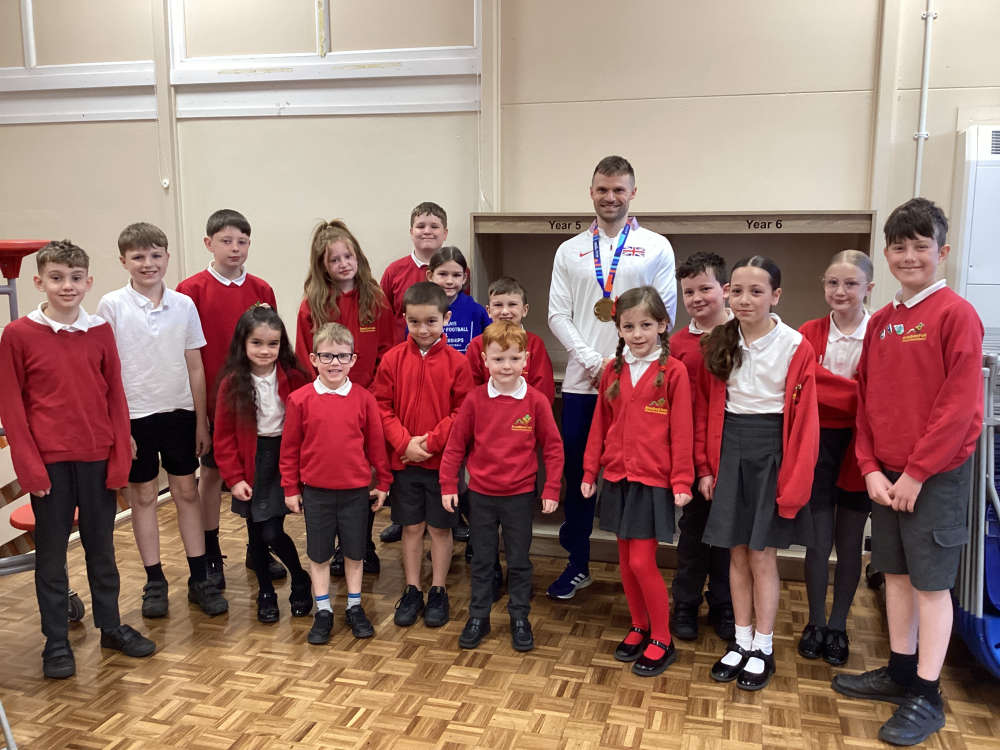 Bronze medallist visits Dukinfield primary school
Bronze medallist visits Dukinfield primary school
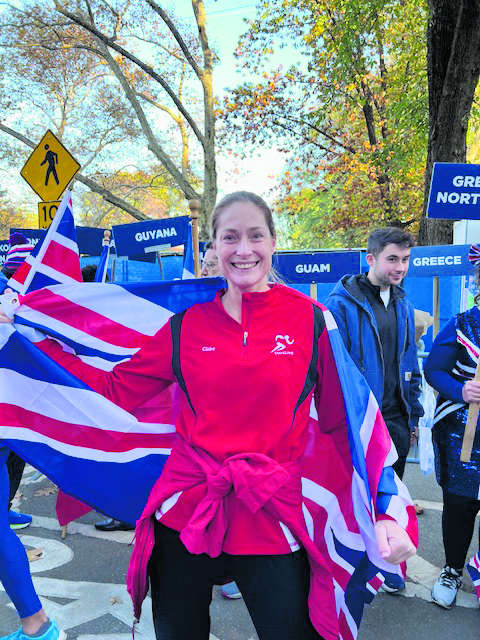 Glossop mum gears up for Boston
Glossop mum gears up for Boston
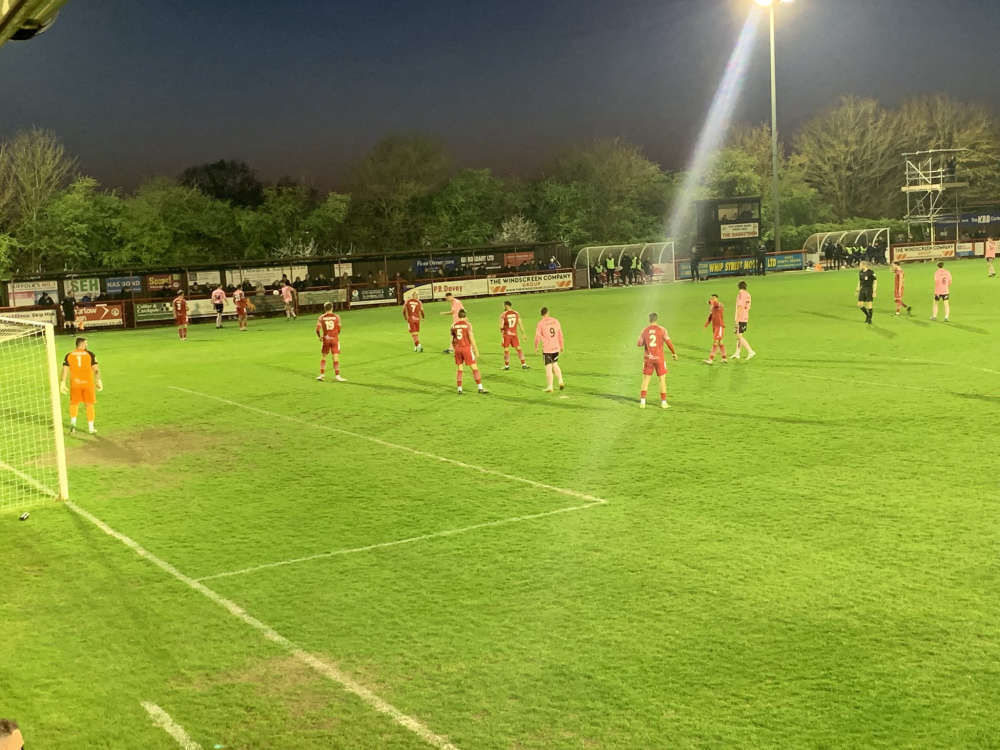 Curzon move into play-offs
Curzon move into play-offs
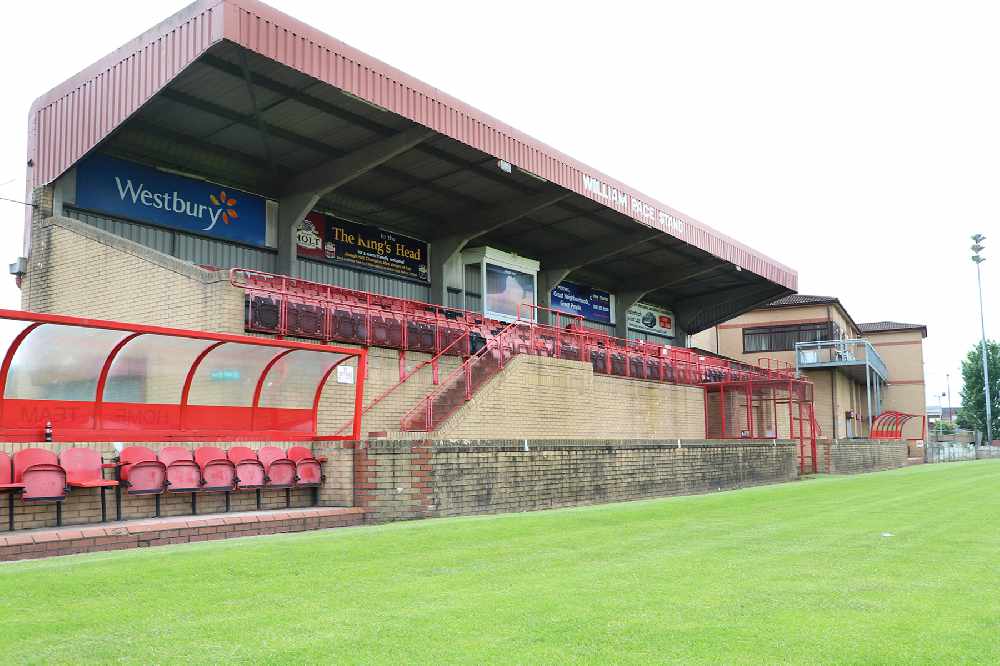 Bloods beaten by league leaders
Bloods beaten by league leaders

